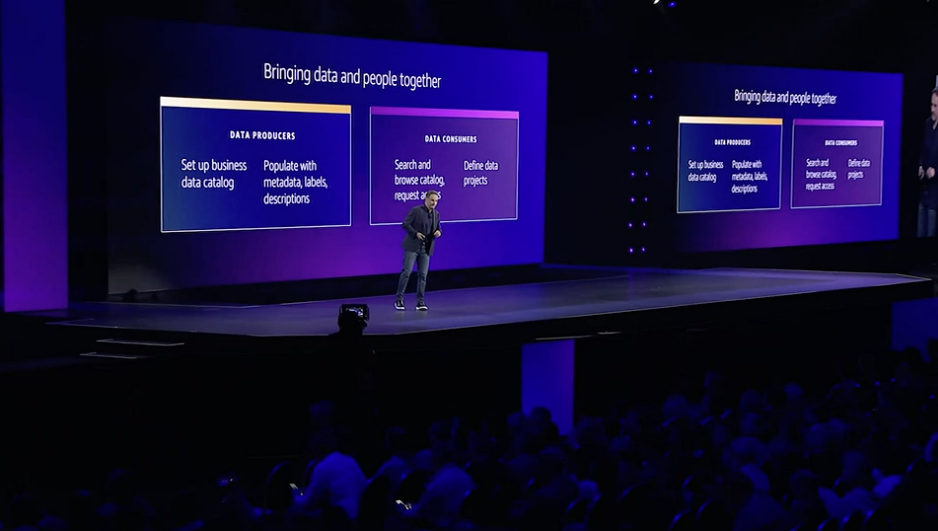At its re:Invent conference, AWS today announced Amazon DataZone, a new data management service that can help enterprises catalog, discover, share and — most importantly — govern their data. The nifty part here is that AWS is using machine learning to help businesses build these data catalogs and generate the metadata to make it searchable.
“To unlock the full power the full value of data, we need to make it easy for the right people and applications to find, access and share the right data when they need it — and to keep data safe and secure.” AWS CEO Adam Selipsky said in today’s keynote.
The tool will provide users with fine-graned controls to manage and govern this data. That’s long been a major problem for enterprises, but it has only gotten harder as the amount of data has increased, ensuring that the right users have access to the right data, without compromising personally identifiable information, for example.
“Data zone enables you to set data free throughout the organization safely by making it easy for admins and data stewards to manage and govern access to data,” Selipsky explained. “And it makes it easy for data engineers, data scientists, product managers, analysts and other business users to discover, use and collaborate around that data to drive insights for your businesses.”
DataZone users will get access to a portal where they can set up their data catalog and define the taxonomy. Once DataZone is connected to a data source, it’ll use machine learning to populate its catalog with its metadata and users can add additional labels and descriptions as needed.
In a somewhat related announcement, AWS also yesterday launched its Digital Sovereignty Pledge, promising to give users the tools they need to control where their data is stored and accessed. DataZone does offer some of those controls, though its focus is obviously not on digital sovereignty.
AWS launches DataZone, a new ML-based data management service by Frederic Lardinois originally published on TechCrunch









